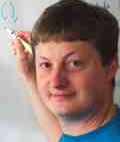QuickCheck for Erlang developers
 Target Audience: Software Developers
Target Audience: Software Developers
Prerequisites: Participants should be familiar with Erlang and use it frequently.
Objectives:
• Use the important features of QuickCheck
• Build-up to a realistic example of building a banking server
Goal: Understand QuickCheck and be able to use it with Erlang.
Duration: Three days.
Registration: 08:30 on 22nd June 2009. Venue to be confirmed.
Description:This course is intensive, modular and hands-on, with each module made-up of lectures and practical exercises. Since QuickCheck builds on Erlang, we take advantage of participants' prior knowledge to introduce QuickCheck more quickly.
Course Contents:
This Quick Check course spans two-and-a-half days, during which participants will use all the important features of QuickCheck, building up to a realistic example of testing a banking server. This course is intensive, modular and hands-on, with each module made up of lectures and practical exercises. Since QuickCheck builds on Erlang, we take advantage of participants' prior knowledge to introduce QuickCheck more quickly.
Needless to say, participants should be familiar with Erlang, and use it frequently.
Teacher(s):
Thomas Arts
 Dr. Thomas Arts is the co-founder and CTO of Quviq, a small company that
produced QuickCheck, as testing tool for Erlang. He has successfully
introduced some new technologies in industry, the latest being
QuickCheck, a tool for property based testing and aims to support test
driven development.
Thomas is also an professor at Chalmers University of Technology
(Gothenburg) in the area of Software Engineering. He holds a PhD in
computer science and after his PhD has been employed at the Ericsson
Computer Science Lab (Where they invented Erlang). He worked on program
verification and the development of the Erlang programming language. He
has also worked in the broad spectrum theoretical computer science,
formal methods and industrial case-study research, mainly applying all
kind of techniques to systems written in Erlang.
Dr. Thomas Arts is the co-founder and CTO of Quviq, a small company that
produced QuickCheck, as testing tool for Erlang. He has successfully
introduced some new technologies in industry, the latest being
QuickCheck, a tool for property based testing and aims to support test
driven development.
Thomas is also an professor at Chalmers University of Technology
(Gothenburg) in the area of Software Engineering. He holds a PhD in
computer science and after his PhD has been employed at the Ericsson
Computer Science Lab (Where they invented Erlang). He worked on program
verification and the development of the Erlang programming language. He
has also worked in the broad spectrum theoretical computer science,
formal methods and industrial case-study research, mainly applying all
kind of techniques to systems written in Erlang.